
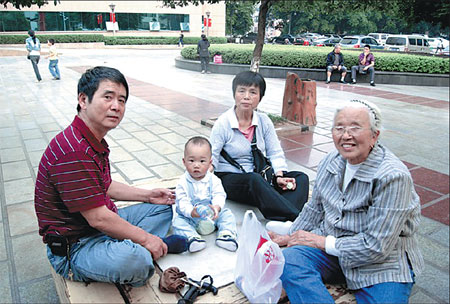 |
| Xiong Jiayi is taken care of by his grandfather, grandmother and 82-year-old great grandmother.(China Daily) |
It is possible they will experience both mental and physical discomfort while adapting to the new environment, but these ailments are generally mild and fade away.
However, Pang says, when their grandchildren grow up and develop their own sense of right and wrong, conflicts between grandparents and parents may increase because of generation gaps.
This is precisely the time that parents should be cautious about being critical of their own parents, Pang warns. He says conflict between mothers and their mothers-in-law can also cause minor anxiety problems.
"Providing the elderly with money or worldly enjoyment is not enough, they also need the feeling of being valued," Pang says. "It is important to communicate effectively when there are disputes."
Cheng Xiang, a clinical psychologist at Xianqiao Hospital in Chongqing says Chinese society is traditionally patrilineal: Men are seen as breadwinners and women take care of the kids and housework.
Now women also work to provide for the family, as men do, but attitudes have not caught up with this reality, Cheng says.
She believes strife between members of an extended family can be devastating and says this can include anxiety and depression. She cites arguments between parents and in-laws, particularly new mothers and their mothers-in-law.
"Most new mothers decline their mother-in-law's help and ask their own mothers to take care of her and the baby. This is a kind of avoidance, but the problem remains," Cheng says.
Cheng suggests the in-laws should be respected as much as one's own parents, and made to feel needed and valued.
She also suggests communities shoulder more responsibility for the problems caused by migrant grandparents, by providing domestic counseling, and organizing morale-boosting activities.




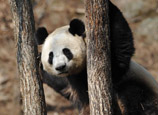

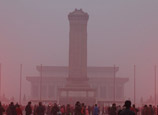

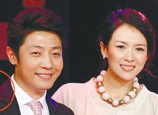
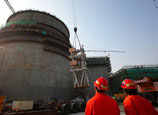







 Buildings collapse after subsidence in S China
Buildings collapse after subsidence in S China


![]()
